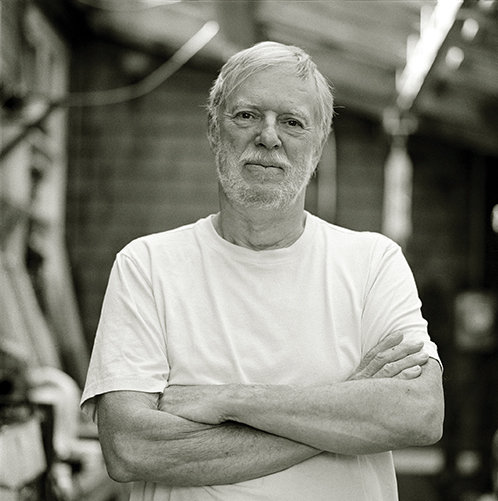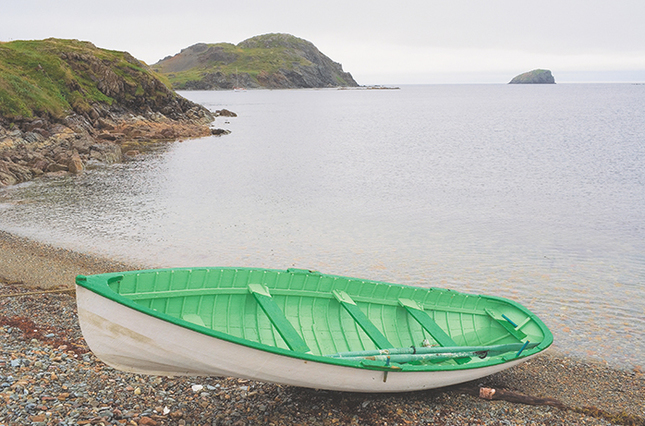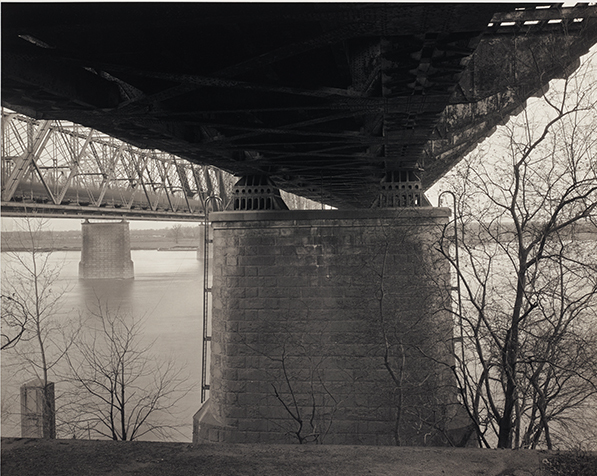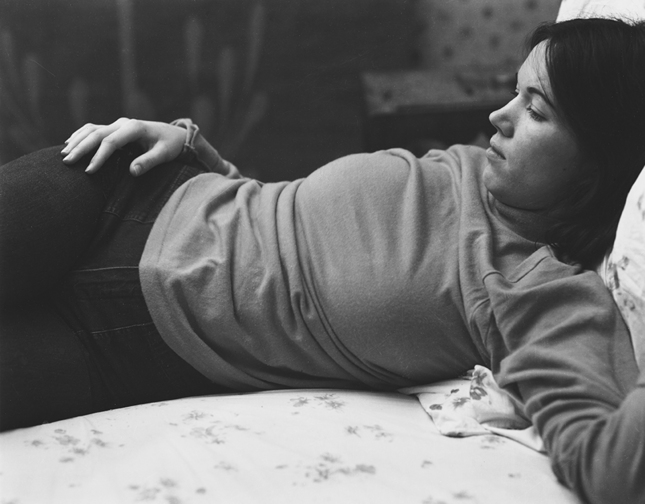
Harvey Wang
Chip Benson knew, early on, that he wanted to make things.
View full image

Harvey Wang
Chip Benson knew, early on, that he wanted to make things.
View full image

© Estate of Richard M. A. Benson/courtesy Philadelphia Museum of Art
“Newfoundland (Green Boat),” from about 2006, is a multiple-impression
pigment print.
View full image

© Estate of Richard M. A. Benson/courtesy Philadelphia Museum of Art
“Newfoundland (Green Boat),” from about 2006, is a multiple-impression
pigment print.
View full image

© Estate of Richard M. A. Benson/courtesy Philadelphia Museum of Art
“Memphis, TN” (1987) is an offset lithograph.
View full image

© Estate of Richard M. A. Benson/courtesy Philadelphia Museum of Art
“Memphis, TN” (1987) is an offset lithograph.
View full image

© Estate of Richard M. A. Benson/courtesy Philadelphia Museum of Art
“Barbara Benson” (1968) is a gelatin silver print of Chip’s wife.
View full image

© Estate of Richard M. A. Benson/courtesy Philadelphia Museum of Art
“Barbara Benson” (1968) is a gelatin silver print of Chip’s wife.
View full image
It’s not an exaggeration to say that Richard “Chip” Benson (1943–2017) often saw directly through problems to find their solutions, or that he knew how to lead and manage without seeming to lead or manage, or that he was one of the wisest people I’ve ever known. Still: considering Chip, that’s all faint praise.
Chip was a master photographer. He taught at Yale for many years and was the dean of the Yale School of Art for several more. It was a joy to learn recently that he and his intense, thought-provoking approach to photography are now being celebrated. His work is currently on display at the Philadelphia Museum of Art; it’s the first-ever survey of his decades of creativity—mostly photographs, of course, but also books he put together and prints he crafted. Also in Philly, the TILT Institute for the Contemporary Image is exhibiting works by Chip alongside works by many of the artists he taught or influenced. (The former exhibition will last through January 23, the latter through January 8.)
Chip was born into an artistic family; his father was a stone carver and calligrapher who taught at the Rhode Island School of Design. Chip himself turned to art on paper. Hundreds of his photographs are preserved at MoMA, the Metropolitan Museum of Art, the National Gallery, and others—including, of course, the Yale University Art Gallery. He was a self-taught master printer. He invented what the School of Art described as “radical new techniques of photographic reproduction.” It’s not surprising that he was a MacArthur Fellow, or that he was discussed in periodicals. One of them was the New Yorker, which noted that “in the field of publications dealing with photography as an art . . . his work is considered to be in a class by itself.”
I came to know Chip very soon after I started working at the Yale Alumni Magazine, because he was then a member of the magazine’s board. I learned quickly that he was helpful and thoughtful, easygoing, full of humor. Mark Alden Branch ’86, our executive editor, puts it best: he remembers Chip as “blessedly plain-spoken and direct, in a way that you didn’t usually find in academia.” At first, all I knew was that Chip was the art school dean. (He was also, very probably, the only Yale administrator who had dropped out of college after a single semester, specifically to devote time to working with his hands.) It took me a long time to see beyond his administrative role and recognize why many believed that he could be called, credibly, a genius.
The New Yorker article—by Calvin Tomkins, published in December 1990—is an excellent portrait of a man who not only thought hard, but genuinely thought out of the box. The article is full of Chip’s quotes. (He was a talker.) One example: “There’s a terrible problem I run into in teaching, which is that when you tell people something, you keep them from ever knowing it. . . . If they find it on their own, they’ll know it in a way they never will if you tell them.”
The Philadelphia Museum’s display of Chip’s photos is named for a piece of advice Chip delivered to many of his art students: “The world is smarter than you are.” It’s a classic Chip Benson phrase: it sounds simple at first, but becomes as deep as a koan the more you think about it. If only he were with us to discuss it.
 loading
loading